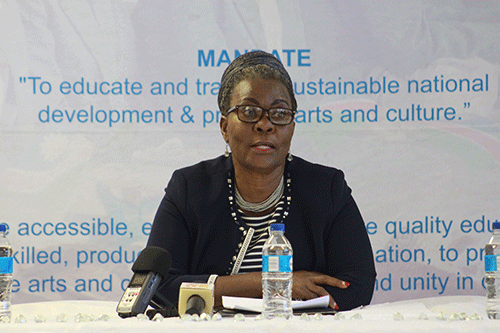Education, Arts and Culture minister Anna Nghipondoka on Friday officially announced the commencement of the Basic Education Act, Act no. 3 of 2020, which has been operating since 5 October 2023 in Namibian schools.
The new Act replaces the Education Act 2001 (Act No. 16 of 2001), following nationwide consultations with the support of UNICEF, to assess the evolving needs of the education system.
The key findings were that there is a need for an Education Act that focuses on inclusivity, equity and quality.
“It addresses not only basic education, but also adult education and lifelong learning, reflecting the diverse needs of our society. It mandates the abolition of non-voluntary parental contributions, and legal provisions for exemption from such contributions,” she said at the event.
Nghipondoka said with the new Act, the age of compulsory attendance in school has shifted from 16 to 18 years. It also includes a section dedicated to ensuring that learners with special educational needs and difficulties are accommodated within the basic education system.
“The Act puts emphasis on the prevention and management of learner pregnancy, and a safe and healthy school environment, including school health services, and outlining minimum standards for schools and hostels,” she noted.
The minister said the new Act now encompasses lifelong learning and adult education, parental responsibility towards learners, and learners’ participation in school governance. It likewise emphasises issues of learner discipline, looking at the responsibility to motivate children for education, and their disposition for good behaviour and discipline.
“By the year 2030, Namibia will operate a totally integrated, unified, flexible and high-quality education and training system which prepares Namibian learners to take advantage of a rapidly changing global environment in science and technology,” she continued.
The guideline principles of the Act with regard to educational matters are the best interests of the child, the protection and promotion of the well-being of all children, education that is inclusive, learner-centred, focusing on the needs of the learner, who is encouraged to express his or her views in matters that concern or affects them, and nothing for them without them, amongst others. – Nampa



